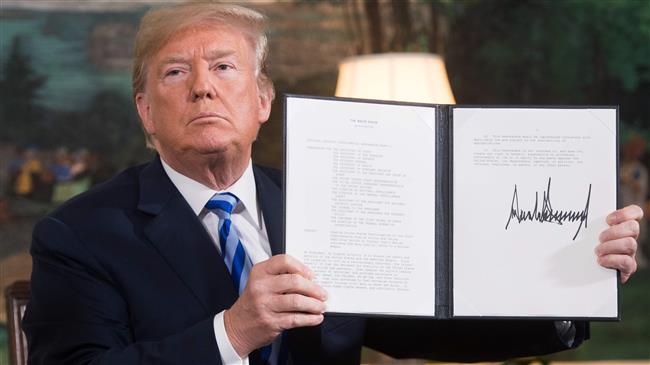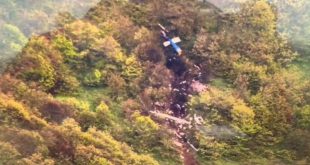The resolution urges Tehran to provide inspectors from the International Atomic Energy Agency (IAEA) with access to two sites in Iran to clarify whether undeclared nuclear activity took place there in the early 2000s.
It “calls on Iran to fully cooperate with the agency and satisfy the agency’s requests without any further delay, including by providing prompt access to the locations specified by the agency.”
Russia and China, both of which had spoken out against the prospect of a resolution earlier this week, voted against it. Azerbaijan, India, Mongolia, Niger, Pakistan, South Africa, and Thailand did not support the resolution either.
The resolution was put forward by France, Germany and Britain, and supported by the United States. Earlier this week Iran warned that such a resolution would be “counterproductive” and that it would take “appropriate measures” in response.
Russia’s Ambassador to the UN in Vienna Mikhail Ulyanov echoed that position after the resolution was passed Friday. “While stressing the need for Tehran and IAEA to settle this problem without delay, we believe that the resolution can be counterproductive,” he tweeted.
China’s permanent mission in Vienna also regretted the resolution, warning it may put the destiny of the nuclear deal with Iran, officially called the Joint Comprehensive Plan of Action (JCPOA), in serious jeopardy.
“China deeply regrets at the adoption, today, of IAEA Board Resolution on Iran’s safeguards implementation, with the caveat of such a move’s huge implications on the prospect of the #JCPOA. China & Russia voted against the above resolution,” the mission tweeted.
Even though the sites in question are not thought to be directly relevant to Iran’s current nuclear program, the agency says it needs to know if activities going back almost two decades have been properly declared and all materials accounted for.
Despite the row over the two sites, the IAEA says it still has the access it needs to inspect Iran’s declared nuclear facilities, as per its mandate under the landmark deal between Iran and world powers reached in 2015.
Earlier this week Iran’s Ambassador to the UN in Vienna Kazem Gharibabadi said in a statement that the IAEA’s access requests were based on allegations from the occupying regime of Israel.
Additional information provided by the IAEA in support of its requests “were merely some commercial satellite imageries that contained no convincing underlying reason” to provide access, he said.
On Friday Gharibabadi characterized the resolution as “non-constructive” and said in a statement in Vienna, that “Iran will show appropriate reaction to the resolution at the right time.”
“It is regrettable that this resolution has been issued by countries that either own or host nuclear weapons,” said Gharibabadi, adding that the resolution was “the outcome of a U.S.-Israeli initiative to exert pressure on Iran.”
Gharibabadi said the IAEA and its resolution “ignored Iran’s cooperation with the agency,” adding that such a resolution was “disappointing and regrettable.”
The resolution comes at a time when the United States is working to extend an arms embargo against Iran.
Iranian officials have said Tehran has responded to all outstanding questions about its nuclear activities and the IAEA has repeatedly confirmed it.
Iran’s Foreign Ministry spokesman Abbas Mousavi on Monday regretted that the IAEA has chosen to ignore Tehran’s long history of cooperation.
“They are opening a closed case. The basis for their allegations is the information that is claimed to have been obtained through espionage by the Zionist regime and [Israeli prime minister Benjamin] Netanyahu,” Mousavi said.
China submitted a 5-page statement to the IAEA on Thursday, saying “The root causes of this situation lie in the unilateral and bullying practices of the U.S.”
China’s envoy Wang Qun said should the resolution pass, it could sound the death knell for the landmark 2015 nuclear agreement between Iran and world countries.
The Trump administration exited the deal, but other signatories vowed to salvage it. Washington is now working to extend a UN-imposed arms embargo due to expire in October under Tehran’s nuclear deal.
The European Union’s top diplomat Josep Borrell said this month that since the United States has already withdrawn from the nuclear agreement with Iran, it can’t now use its former membership of the pact to try to impose a permanent arms embargo on the Islamic Republic.
European officials, however, have never seriously stood up to the U.S. They have already failed to take steps to ensure that Tehran benefit from the deal following Washington’s unilateral withdrawal from the accord in May 2018.
The resolution comes just after IAEA Director General Mariano Grossi said Monday that the agency “continues to verify the non-diversion of nuclear material declared by Iran under its Safeguards Agreement”.
“To date, the Agency has not observed any changes to Iran’s implementation of its nuclear-related commitments in connection with this particular announcement, or in the level of cooperation by Iran in relation to Agency verification and monitoring activities under the JCPOA,” he said.
On Thursday, Gharibabadi, said “no country will open its territory to the inspections” only based on continuous allegations provided by its own enemy.
“Possibly you may ask why Iran does not grant access to the two locations automatically. The answer is clear: as a matter of sovereignty, no country opens its territory to the inspections only based on continuous allegations provided by its own enemy, even if it is evident that the result of which will prove those allegations to be false,” the Iranian diplomat said.
“I would like to ask the Member States to put themselves in our shoes and see if they are ready simply to engage with the Agency every now and then based on unsubstantiated allegations made by their adversaries?!”
According to the IAEA’s 129-page 2019 Safeguards Implementation Report, Iran received the biggest part of the inspections that were carried out worldwide by the atomic organization’s inspectors, and the figure stood at 21 percent of the entire visits made to various nuclear sites.

 صراط عشق صراط عشق
صراط عشق صراط عشق




